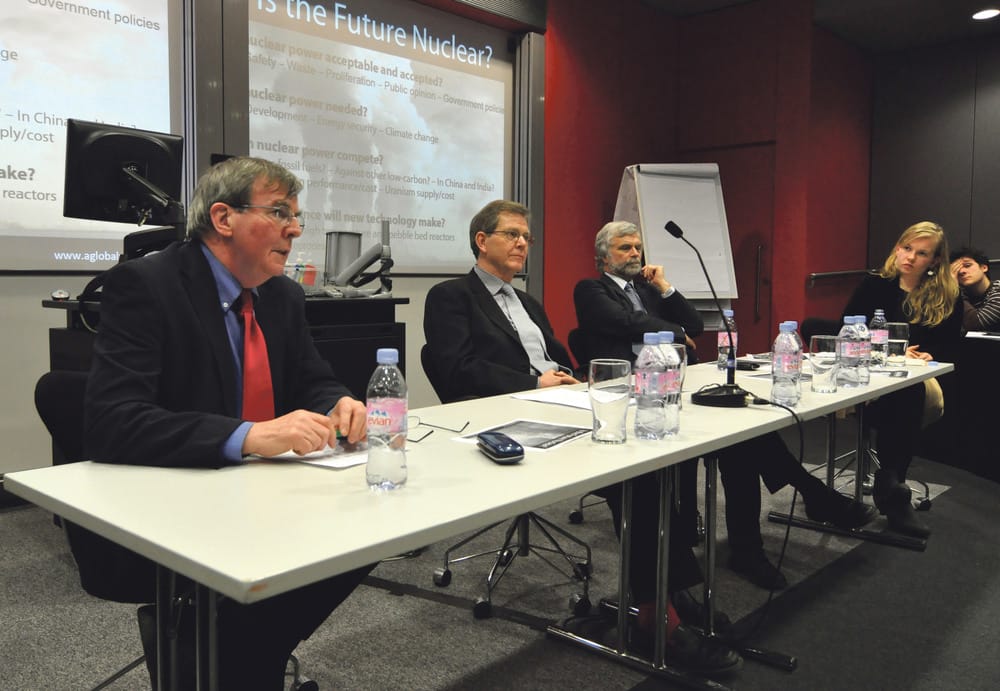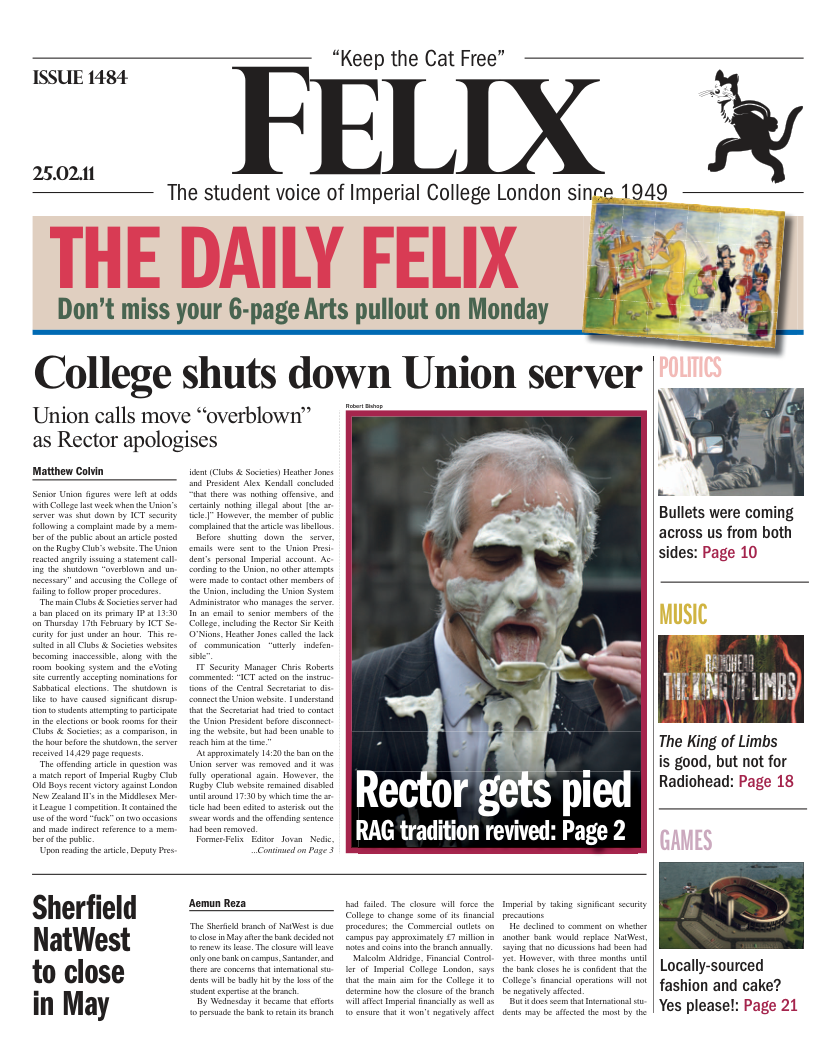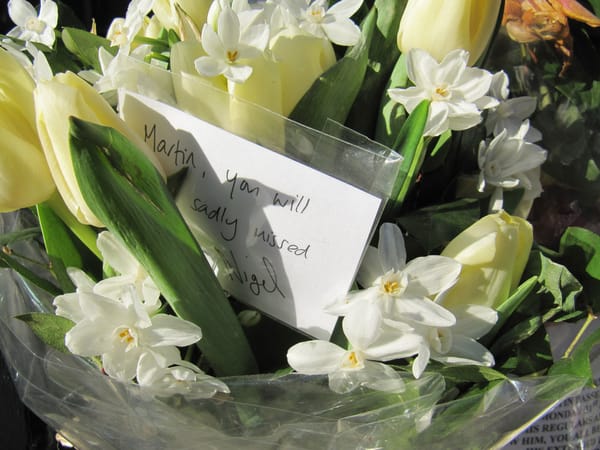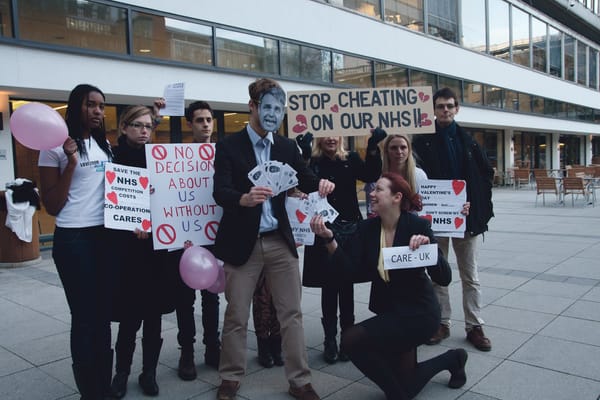Is the future nuclear?
Three of the UK’s leading experts on nuclear power debate the future of nuclear power

On Thursday 17th February, three of the UK’s leading experts on nuclear power came to Imperial to discuss their pet subjects in a debate organised by A Global Village; Imperial’s global affairs journal. Joining the debate were Professor Jim Skea OBE, Director of the UK Energy Research Centre, Professor Gordon MacKerron, Director of the Sussex Energy Group and Chair of the UK Committee on Radioactive Waste Management and Neil Hirst, Senior Policy Fellow in Energy Mitigation and Climate Change at the Grantham Institute at Imperial.
Although the title of the debate was ‘Is the future nuclear?’ all three experts quite clearly did agree that the UK’s future would require increased nuclear power capacity. The real question was, how much should we invest in nuclear and how far do we have to go to make it safe? Prof. Skea started by stressing that the need to decarbonise the UK’s electricity supply is undeniable, targeted to be completed in 20 years. However, he insisted that while nuclear power had its role to play, renewable should make up a significant part of the energy mix. He was sceptical of the role that fossil fuels could play in a low carbon energy future for the UK, pointing out that Carbon Capture and Storage (CSS) was ‘yet to be demonstrated’.
Neil Hirst took a much stronger stance, saying that we need nuclear power in order to achieve Copenhagen’s “fantastically difficult” target of limiting global warming to two degrees. He quoted figures from the International Atomic Energy Agency (IAEA) which projected that ruling our nuclear power would cost the world’s governments an extra $6 trillion by 2050 in order to meet current climate change accords. Once new generation reactors are built, he said, nuclear will be the cheapest source of energy for the foreseeable future, with the occasional exception of gas. As for the issue of waste management, he insisted that “properly managed and regulated forms of waste disposal are safe”, admitting that “winning support for waste solutions remains a big problem”.
Prof MacKerron presented a markedly more sceptical view of nuclear power. His own introduction to nuclear came in the 1970’s when he conducted a study showing that coal was cheaper than nuclear power. Although he accepted that new generation plants should be more efficient, he pointed out that they seldom stick to projected costs. A new reactor in Finland, he pointed out, was 50-70% over budget and already 3 years behind schedule. He also took a stronger stance on waste disposal, quoted the late Lord Flowers, former rector of Imperial, “there should be no new project without a sustainable waste plan”. He also said that industry should be made to pay for any nuclear waste cleanup operation.
While nuclear power does increase the UK’s energy security, most of our gas doesn’t actually come from Russia, as is often thought, but from much friendlier Norway
Much else was discussed at the debate. It was pointed out that while nuclear power does increase the UK’s energy security, most of our gas doesn’t actually come from Russia, as is often thought, but from much friendlier Norway. If nuclear was to be used as effectively as possible, the experts agreed, the way in which we use our energy must change. Cars which run on petrol cannot be run by nuclear power and yet contribute to a significant amount of CO2 emissionl; only when more cars are electric will nuclear power succeed in reduce emissions from this carbon-intensive sector of the economy.
Professor McKerron duelled with members of the audience who accused nuclear power plants of having a huge hidden cost; that of decommissioning. He argued that decommissioning should cost around 10% of the total investment required in a plant and should be funded by companies setting aside a pot of money for this purpose. Neil Hirst was keen to stress that the only danger posed by nuclear reactors comes from those built in less stable countries with low quality research and regulation but that this is simply not the case in the UK.
Following a lively Q&A session with the audience, a vote was taken. Is the future nuclear?- the overwhelming majority of the audience said that yes, it was. Hardly a surprise at Imperial, perhaps. But as to how much to use and how to deal with the waste; these issues were left to be discussed over the free after-event orange juice and beyond.








